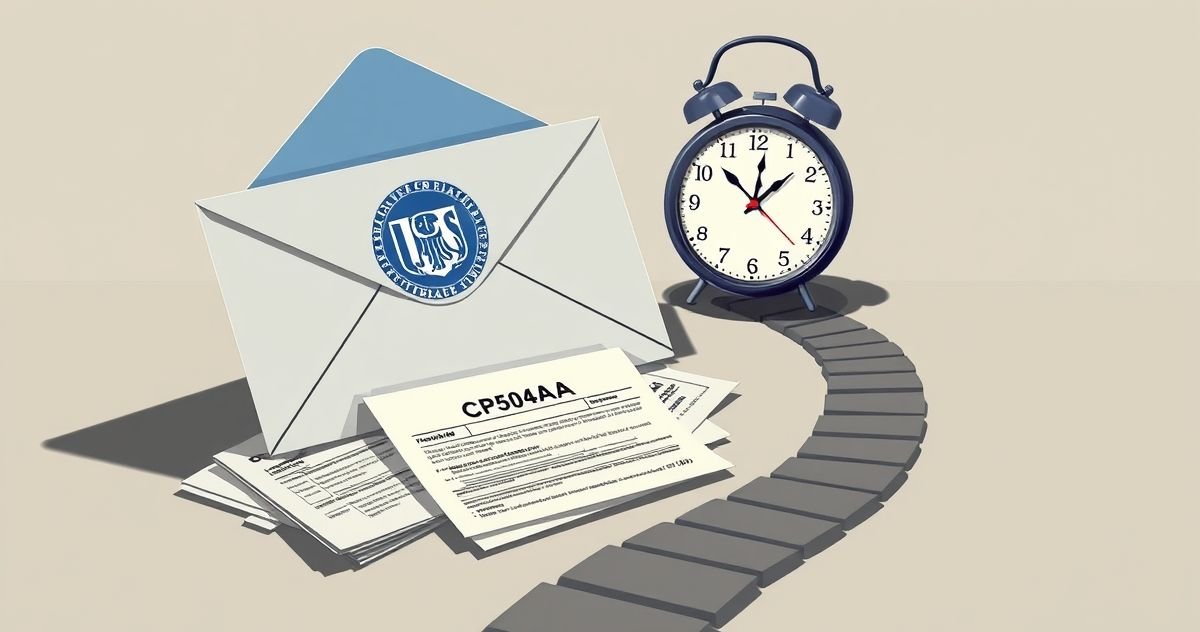What is the CP504AA Notice?
The CP504AA Notice is an official communication from the Internal Revenue Service (IRS) informing taxpayers of overdue tax payments. This notice serves as a final demand for payment before the IRS takes further enforcement action, such as placing a levy on the taxpayer’s state tax refund or initiating other collection efforts. The primary purpose of the CP504AA is to alert taxpayers to their outstanding tax liabilities and the urgent need to resolve them to avoid further consequences.
Key Features of the CP504AA Notice
- Notification of Delinquent Taxes: The CP504AA provides a detailed account of the taxpayer’s unpaid balance, including the original amount owed, accrued interest, and any applicable penalties.
- Warning of Enforcement Actions: The notice explicitly warns taxpayers of potential collection actions that may be initiated if the overdue balance is not settled. This typically includes the possible seizure of a state tax refund.
- Payment Instructions: The notice includes clear instructions on how to pay the amount due, including available payment options, to encourage prompt resolution.
Relevant Filing or Compliance Requirements
Upon receiving a CP504AA Notice, taxpayers are required to address the outstanding balance promptly. Compliance includes either paying the full amount due as stated in the notice or arranging a payment plan if immediate payment is not feasible. Taxpayers can often set up installment agreements through the IRS website or by contacting the IRS directly. It is essential to respond promptly to avoid further escalation of enforcement actions.
Penalties or Consequences for Non-Compliance
If a taxpayer fails to respond to the CP504AA Notice, the IRS may escalate collection efforts. This can include placing a levy on the taxpayer’s assets or income, including wages and bank accounts. Furthermore, continued non-compliance can lead to additional penalties and interest, further increasing the taxpayer’s debt. A lack of response can also potentially trigger more severe enforcement measures, such as a federal tax lien impacting the taxpayer’s credit score and the ability to secure loans or sell property.
Importance of CP504AA in Tax Resolution
The CP504AA Notice plays a significant role in tax resolution by urging taxpayers to address unpaid taxes before more aggressive collection actions are initiated. It serves as a critical warning and provides an opportunity for taxpayers to rectify their financial standing with the IRS. Handling the CP504AA Notice swiftly can prevent additional penalties and stress associated with enforced debt collection. By understanding the notice and responding effectively, taxpayers can maintain financial compliance and minimize the potential impact on their personal finances.
Conclusion
Receiving a CP504AA Notice is a serious matter that highlights an urgent need for action regarding unpaid taxes. Understanding the notice’s details and the associated consequences of ignoring it is crucial for taxpayers aiming to maintain fiscal responsibility. Establishing communication with the IRS and seeking professional tax advice if necessary can aid in effectively resolving the issues outlined in the CP504AA, thereby avoiding further complications and supporting financial health.



